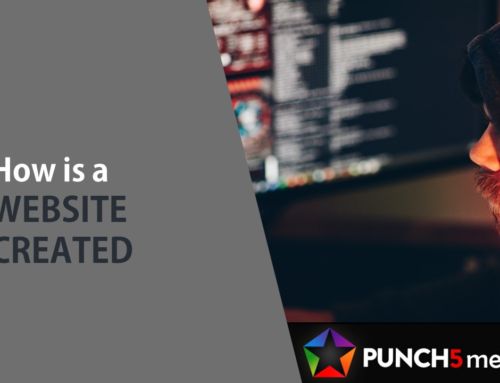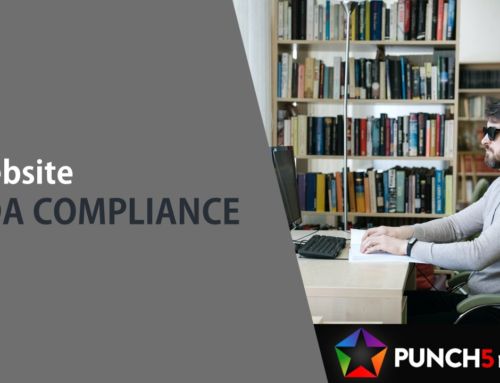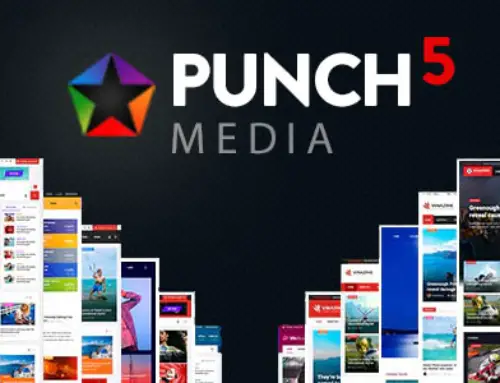10 Powerful Benefits of Having a Website
Websites are a powerful tool for businesses of all sizes. The usefulness of a website allows business owners to reach a wider audience, connect with customers and grow sales 24-7. And these are only just an initial handful of the benefits of a website.
Overall, investing in a website in business is a wise decision that can help you reach your business goals. The benefits listed within this article are further compounded if your website exists within an online ecosystem of assets including your social channels, reviews, sales funnels, and other mentions of your brand on external channels.
Among the chief advantages of a website is that it’s a powerful marketing and communication tool that can help the achievement of both professional and personal goals. Even personal branding can be deliberately executed by having a website you control that is also enhanced with a strong social media presence.
Benefits of Having a Website

This list is presented in no particular order. In fact, all the advantages of having a website are almost equal in power and impact. There’s no one-size-fits-all answer, but each website brings its own unique value depending on the specifics of your business.
1. Credibility
A website helps you build credibility with potential customers. It shows that you’re a professional who is invested in their business. People Google everything and anything before they make a purchase, so not having a website could cost you customers. If you’re thinking you don’t need a website because you already have a Facebook Page then think about this: Anyone can create a social media account, but it takes more effort to create and maintain a professional business website. Effort that your audience will notice and respect you for.
Having a website gives you the opportunity to build trust with your audience by providing them with quality content. You can establish yourself as an expert in your industry by sharing your knowledge and insights on your blog or in articles, white papers, and eBooks.
2. Increased Sales
A website gives you the opportunity to increase sales and reach a wider audience. You can sell products and services directly from your site and accept payments through secure online forms.
You can also use your website to generate leads for your sales team. By providing visitors with valuable content like eBooks, webinars, and free trials, you can capture their contact information and follow up with them later.
3. Improved Customer Service
A website provides a 24/7 customer service channel. Your customers can find the answers they need on your site, without having to wait for someone to get back to them during business hours.
Send updates and announcements, post FAQs, and provide customer support through live chat or a contact form on your website. You can even use your blog to answer common questions and address customer concerns.
When you do these things, you build stronger relationships with your customers. By providing them with valuable content and resources, you can keep them coming back for more. In addition, because of the wealth of information you can share about your products and servicer, you’ll find that there’s less need for customer support requests.
4. Brand Awareness and Recognition
A website helps you build brand awareness and recognition. By having a consistent look and feel across your site, you can start to establish yourself as a credible source in your industry.
A professional website that is well-designed and easy to use will leave a positive impression on visitors, which can help build your brand.
5. Reach a Wider Audience
A website gives you the opportunity to reach a global audience. You are no longer limited to selling to people in your local area. With a website, you can reach anyone in the world with an Internet connection. This gives you a much wider reach than other marketing channels like print or television.
This is especially beneficial if you offer products or services that can be consumed internationally. You can also use your website to target specific markets with customized content. In some cases it is much easier for people with disabilities to access your services using a website than physically visiting your store locations.
6. Increased Traffic
A website gives you the opportunity to increase traffic to your business, both organically and with paid ads. By optimizing your site for search engines, you can attract more visitors to your site who are interested in your products or services.
Your competitors are likely already doing this, so if you don’t have a site of your own, you’re already at a disadvantage. If getting organic traffic is something that will help your business grow, then you need to have a website before you can do SEO.
Paid ads are another great way to increase traffic to your site. With platforms like Google Ads, you can place ads on search engine results pages and other websites. This can be an effective way to reach potential customers who are already interested in what you have to offer.
Any form of Digital Marketing relies on a website as its foundation. A website is the starting point for all other marketing activities, and it should be the cornerstone of your overall Digital Marketing strategy. It’s where sales are made. Social media channels attracts the attention of potential buyers, but funneling those users into the sales page of your site is where the money is made.
If you’re not using a website as part of your Digital Marketing strategy, you’re missing out on a huge opportunity. A website is essential for any business that wants to succeed online.
7. Stay Ahead of the Competition
In today’s digital world, every business needs a website to stay competitive. Having a website shows that you are serious about your business and helps you stand out from the competition.
Set yourself apart from your competitors by giving value to your customers. Use your website to share helpful resources that will make their lives easier or answer their questions. By providing valuable content, you’ll build trust with your audience and establish yourself as an expert in your industry.
8. Collect Data
A website also allows you to collect data about your customers. You can use this data to learn more about your target audience and what they want. This information can help you make better decisions about your marketing efforts and improve your overall business strategy.
You can also use data to create targeted marketing campaigns. By segmenting your audience, you can create custom messages that are more likely to resonate with each group. This will help you improve your conversion rates and get more sales.
9. Track Results
Websites enable you to track results through web analytics tools like Google Analytics. This data can help you understand how visitors are interacting with your site and what’s working well so you can make improvements.
You can track things like the number of visitors to your site, the pages they’re viewing, how long they’re staying on your site, and what actions they’re taking. This information can help you optimize your website to get more sales.
There’s just no way to track results like that with other marketing channels like print or television. How else would you know definitively if your ad campaign is actually working?
10. Save Time
A website can save you time by automating tasks like appointment booking, contact forms and customer queries. This frees up your time so you can focus on other aspects of your business.
Website automation can also help you nurture leads and close sales faster. By setting up automated email marketing campaigns, you can stay in touch with your leads and build relationships with them over time. When they’re finally ready to buy, you’ll be top of mind.
Wrap Up
I hope this article has helped you understand the top benefits of having a website. Of course, it needs to be a quality website and not just a few random pages just for the sake of having a digital presence.
A good high quality website is essential for businesses in the modern world and users have come to expect a certain level of professionalism and engagement from the websites they visit.
If you don’t have a website for your business yet, now is the time to start planning one. And if you already have a website, make sure it is up to par with your competition.
Budget is always a factor, but the cost of NOT having a website might be more expensive than you think. It could be the best decision you ever make to invest in a quality site for your business.
I’d love to hear your thoughts on this topic. Do you think websites are essential for businesses? Let me know in the comments below.



